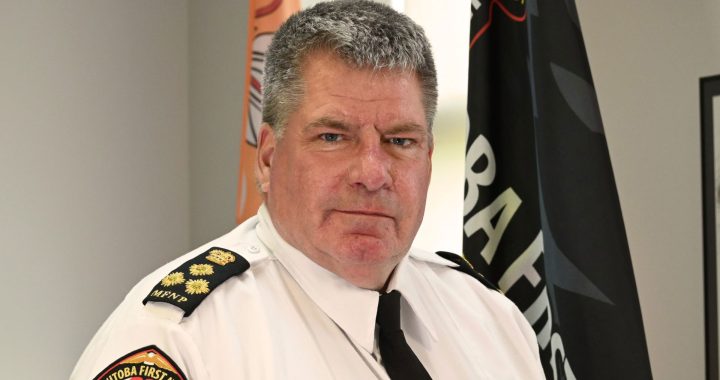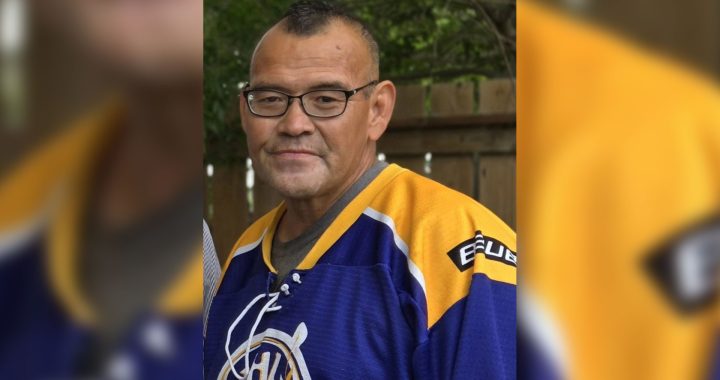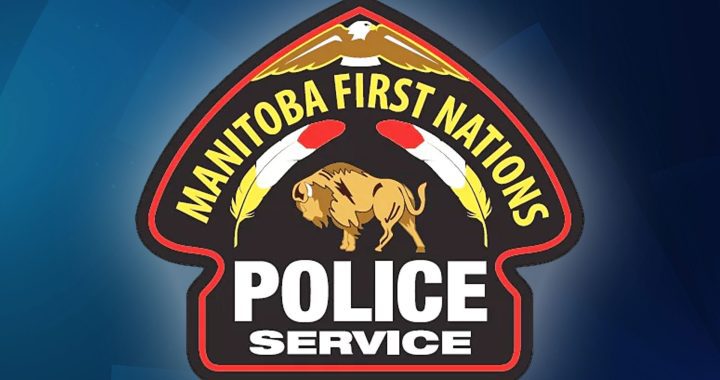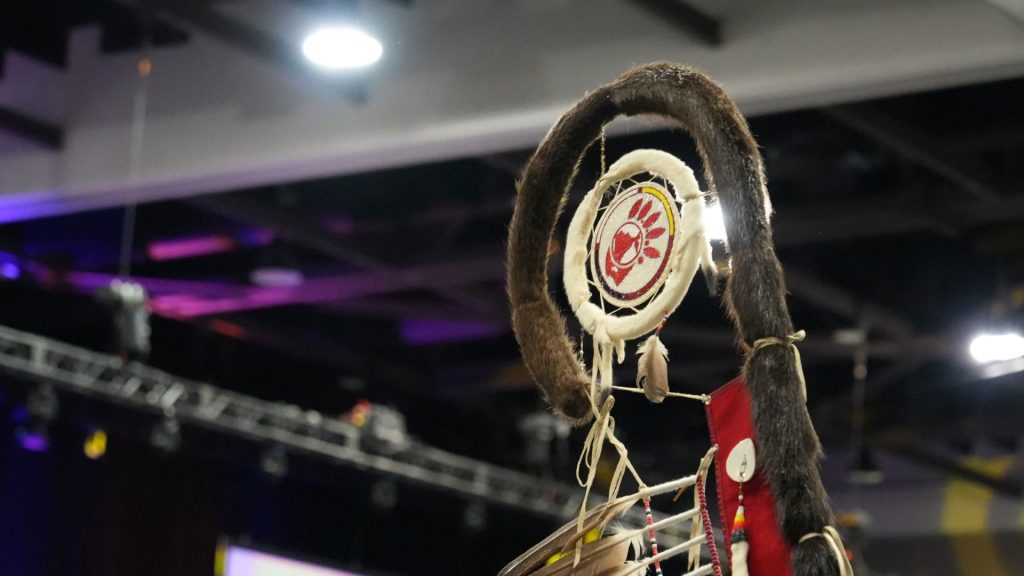
The staff of the chiefs of Ontario at the AFN gathering in Ottawa. Chiefs in the province say they want a deal ahead of the next federal election. Photo: Mark Blackburn/APTN.
Chiefs in Ontario say they’re not wasting any time negotiating a deal to reform the child welfare deal considering the political upheaval in Ottawa that may lead to a Spring or Summer election.
Temagami First Nation Chief Shelly Moore-Frappier said she’s been following every update of the proposed settlement agreement since she was elected two years ago.
“The deal, it’s not perfect, but we’re going into what is most likely a Conservative government and really what this deal for us brought was a lot of certainty,” she said.
Temagami is home to about 250 Anishanabe citizens and rests on Bear Island, a three square kilometer area in northwestern Ontario.
While it may not actually be that far north compared to fly-in communities it is remote in its own way.
The nearest town, or service centre, is just over 100 km north in North Bay.
That’s where people go to see a dentist or a doctor and where they buy the majority of their groceries – although there is a convenience store on reserve.
Getting there means a half-hour boat ride, or this time of year, a snow machine across the frozen lake to a parking lot on the mainland and then an hour and half drive to the city – providing the roads are clear.
When it comes to helping a child or family in crisis, that remoteness matters in so many ways, said Moore-Frappier – especially when it comes to prevention because there is no child welfare agency in the community.
Those services – like the Native Child Welfare Prevention, the Indigenous Healthy Babies Program and the Prenatal Nutrition Program – that aim to support children and keep them out of child welfare have been in the community for 20 years, but were chronically underfunded, she said.
Funding agreements weren’t enough to employ full-time frontline workers. Without budget lines set aside for support, workers were forced to spend too much time scavenging for money.
“ When somebody is having to push paperwork all of the time and they’re focused on that, they are not focused on working with the family and the needs of the family,” said Moore-Frappier.
“In the past, you couldn’t just go, ‘Okay, we’re going to get a $500 gift card. We’re going to the grocery store.’ We’re talking about very basic things that can change [with this agreement], you know, like take that stressor off of the family.”
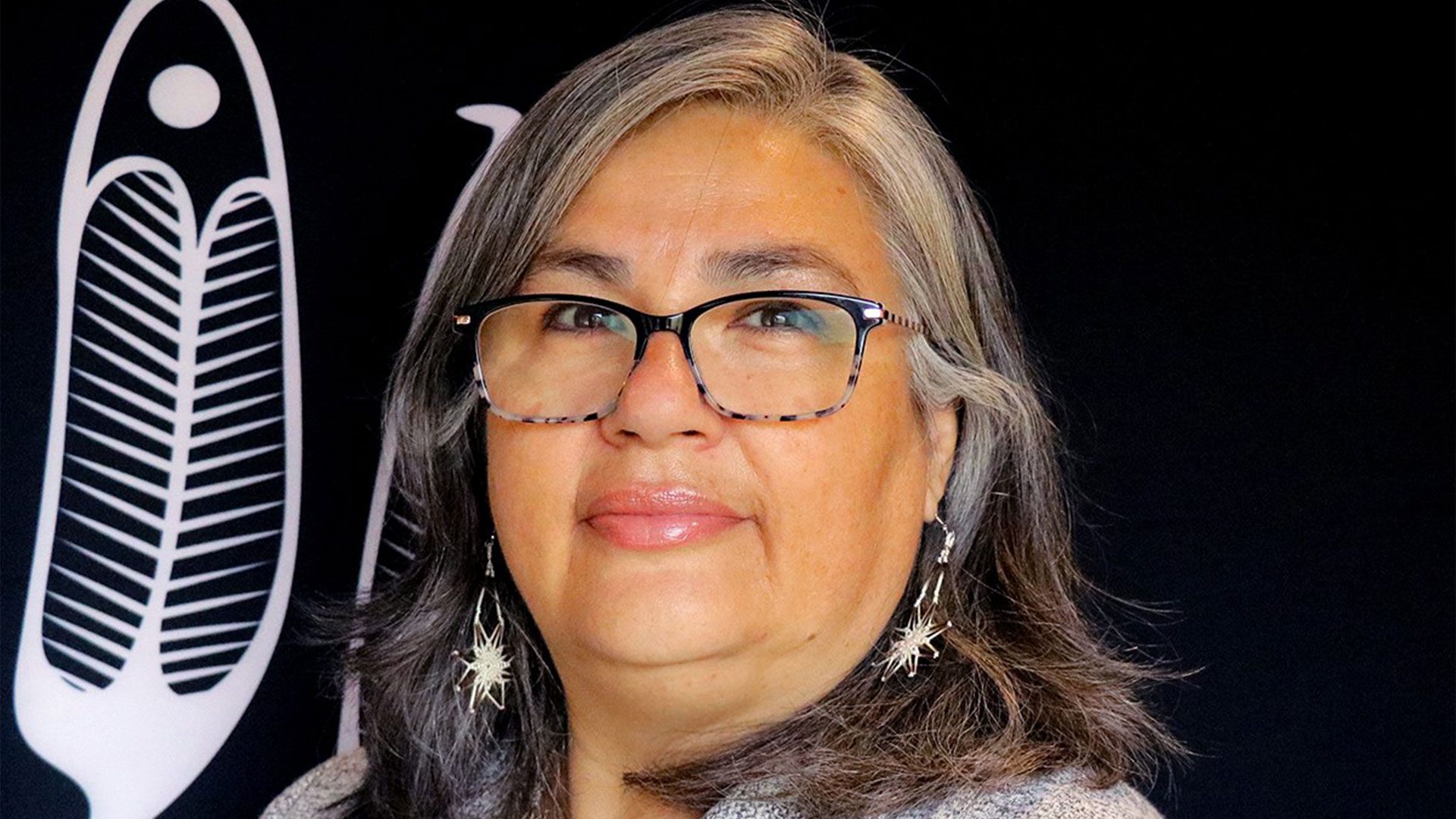
Temagami First Nation is not represented by NAN, a political territorial organization representing 49 northern First Nations, but the chief believes they will also benefit from a new funding formula for remote First Nations NAN insisted be woven into the agreement.
In the past, Indigenous Services Canada gave northern communities an extra 10 per cent to help with higher costs. According to NAN, the extra money wasn’t based on any sort of analysis.
In other words, the top up wasn’t tied to what it actually cost to deliver a service in a remote community.
”Many of our communities in NAN are remote flying communities and we need to ensure that the the remoteness challenges are reflected in this agreement,” said NAN Grand Chief Alvin Fiddler.
”We created a table called the Remote Discretion Table where a lot of the number crunching was done to actually figure out the true cost of delivering a service or a program, in this case child welfare, in a remote setting.”
Fiddler said he knows first hand what it’s like to need support services having adopted a child who needed multiple supports and services, even as an infant.
“And at one point, I don’t know how old she was, she was still pretty young, but [we were told] she would have more access to supports and services if she was in the child welfare system. And we just said ‘No’, we said ‘No,’” Fiddler said.
“We were pretty adamant that we wanted to look after her, ourselves. It’s an ongoing battle. It doesn’t really matter what profession, if you’re a grand chief or if you’re a teacher, whatever, the challenges are the same.”
Sooner, not later, and before an election
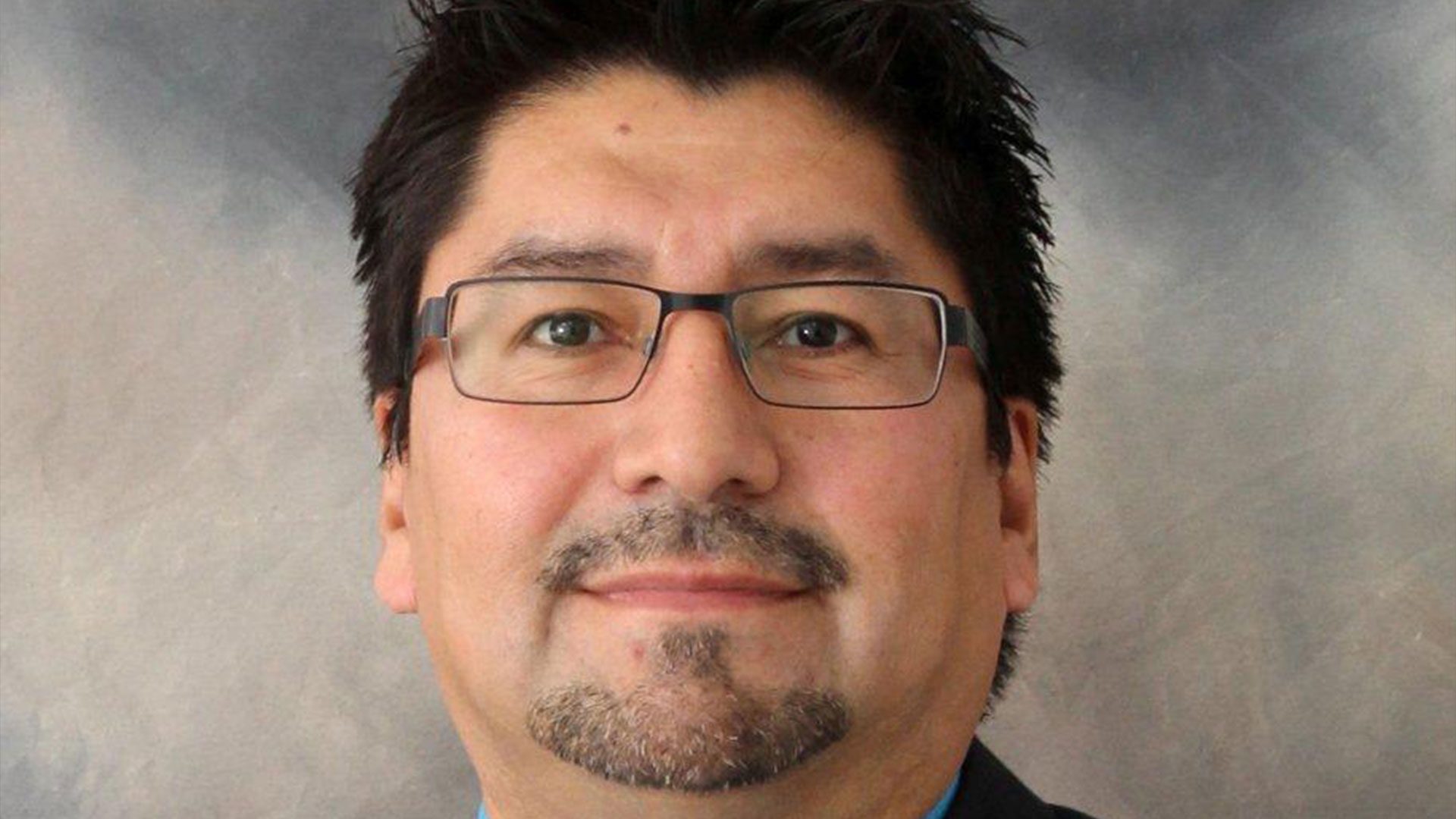
The deal the chiefs in Ontario are negotiating is largely based on one previously negotiated between NAN, Chiefs of Ontario, Assembly of First Nations and Canada called the Final Settlement Agreement, or FSA. It does not include Jordan’s Principle reforms.
It was supposed to be a deal that created national reforms. The federal government offered up $47.8 billion over ten years, however, that money would have to be approved each year.
At an AFN gathering in Calgary in October, a majority of chiefs voted it down saying they weren’t consulted, the document was flawed and the money wasn’t guaranteed.
They wanted to negotiate a new deal. Chiefs in Ontario, who were part of the negotiating team that came up with the FSA, announced on Tuesday they’d go it alone on the deal.
Chief Wilfred King of Gull Bay First Nation said that has already delayed the money from coming in. If the original agreement had passed, monies could have started flowing sooner..
Gull Bay First Nation is home to just more than 300 Ojibway citizens, and lies 190 km north of Thunder Bay.
Unlike Temagami First Nation, Gull bay is accessible by car year-round and is served by an agency Dilico Anishinabek Family Care, which stands to benefit from an agreement as well.
“We’ve had no children in care on our reserve until recently and we only have the one, so that’s why we thought this would have been excellent to keep that momentum going,” said King. “ Had the agreement been ratified in Calgary, there would have been a lot more money directly to the communities, and that’s where it would have made the difference.”
He also points to the tense and unpredictable situation in Ottawa as a reason to ratify the deal sooner, rather than later and before a possible election.
For months now, Justin Trudeau’s Liberal government has been shaky.
There have been constant threats that the NDP will join the Conservative Party and Bloc Quebecois in a no-confidence vote that will topple the Liberals. Poll after poll shows Conservative leader Pierre Poillievre’s party ahead of the Liberals.
“I think that was something that was very clear that chiefs recognized that lived through the Harper years. I lived through the Harper years as well,” said King.
“We’ve seen the massive cutbacks of First Nations programs and services. And, I don’t know, I’m not sure what Pierre Poilievre will do in the future, but, [based on Harper’s actions] we feel that First Nations programs and services will be cut.”
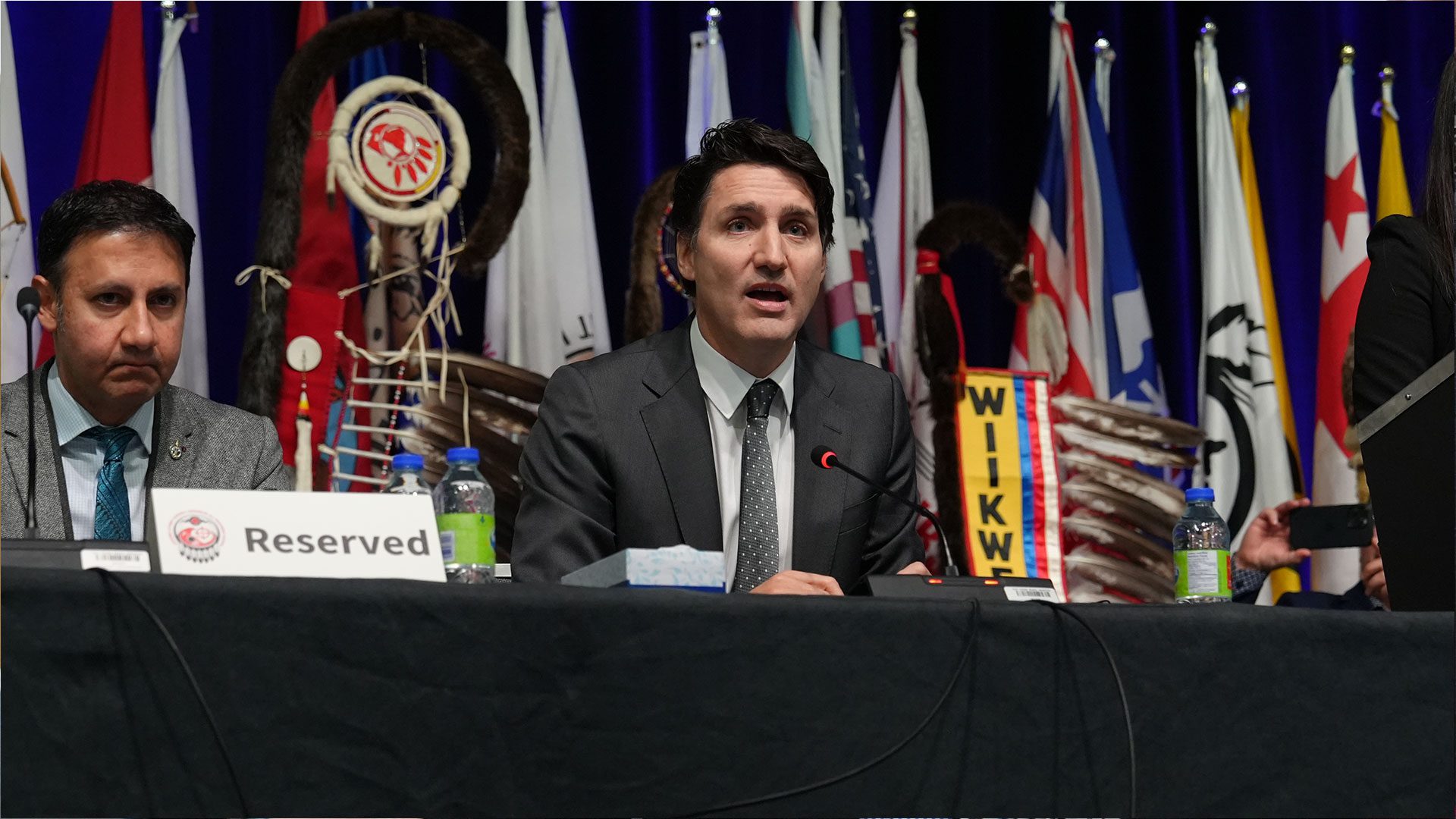
With the Liberals poised to replace Trudeau, there will be a new prime minister by the time Parliament resumes on March 24.
It is now widely speculated that there could be an election as soon as Summer, and if not then by the Fall.
It all hinges on if the NDP decide to hold up the Liberals, or side with the Conservatives and Bloc in a future confidence vote.
A new government can’t fully cancel a reform of child welfare services, because the reform is not merely a policy, it has been ordered by the Canadian Human Rights Tribunal, which has the legal authority to mandate that a deal be negotiated.
But King is cautious saying litigation can’t order specific outcomes. A delay could mean a worse deal.
”What’s important to recognize is the political reality. I’ve always said this, you know, we have Supreme Court of Canada decisions that are being ignored by the federal government, the highest court in the land, said King. “So if they (government officials) are not adhering to the Supreme Court of Canada decisions, why would they adhere to a tribunal order? Right?
”We know that there’s some, some urgency to this with any federal election, but also just the, the conditions that many of our children, many of our families are, are currently in, that they don’t have access to adequate support and services,” said Fiddler.
Meanwhile, chiefs who voted against the original settlement agreement are in the process of setting up a Chiefs’ Children’s Commission (CCC) hoping to negotiate a better deal.
They were surprised on Tuesday when Indigenous Services Canada sent a letter to the Assembly of First Nations indicating they would only negotiate with chiefs in Ontario, stating its mandate “does not permit further negotiations at a national level.”
David Monias, chief of the Pimicikamak Okimawin in Manitoba, sits on the CCC.
“Let me express my happiness for the Ontario Chiefs. They’ve set an important precedent, and their persistence in advocating for their people’s rights deserves recognition. This decision highlights the potential for progress when First Nations stand firm on their principles, “ said Monias.
“However, from a broader political and legal perspective, this decision raises serious concerns about equality and fairness in how Canada fulfills its obligations to First Nations. The CHRT rulings have been clear: Canada must treat First Nations universally, equally, comprehensively, and fairly. What Canada does for one or one group, it must do for all.”




